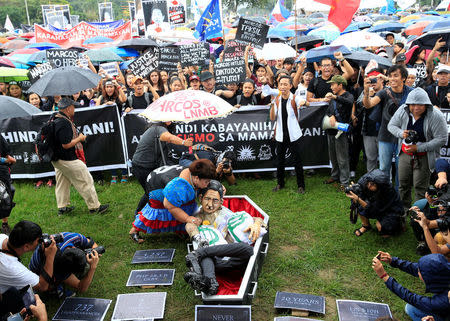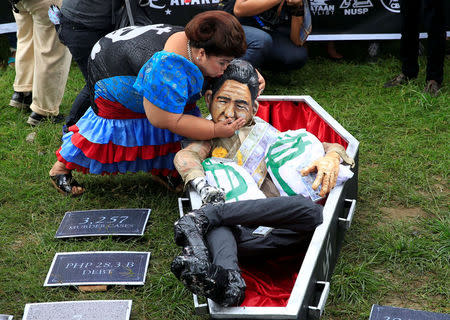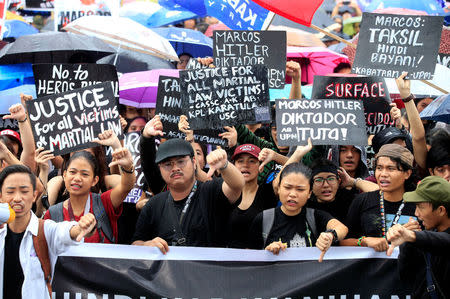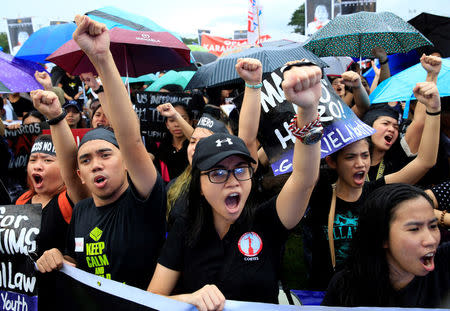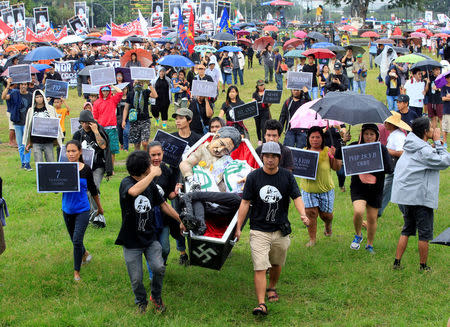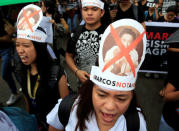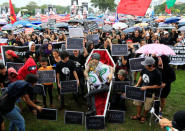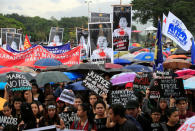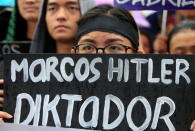Filipinos march in Manila to protest dictator's divisive burial
MANILA (Reuters) - Thousands of Filipinos demonstrated on Friday against last week's burial of former dictator Ferdinand Marcos in a heroes' cemetery, showing disdain for the veneration afforded to a strongman accused of widespread plunder and brutality. Those persecuted during martial law under Marcos joined students and activists in marches in Manila, in what was a subdued show of anger at a burial with military honours that was kept under wraps until just a few hours beforehand. Marcos ruled the Philippines for 20 years, imposing martial law in 1972 and governing by decree in what was one of the darkest chapters of the country's history. President Rodrigo Duterte had called for the burial, 27 years after Marcos's death, arguing that as a former military man and head of state, he met the criteria for a place in the heroes' cemetery. The family remains a highly influential political force and has relentlessly pushed for the burial of Marcos in what critics say is an attempt to clear his name. Judges on the Supreme Court on Nov. 8 ruled 9-5 in favour of throwing out petitions against the burial. At the peak, about 10,000 rallied in the capital's Rizal Park on Friday, many under umbrellas following an afternoon of rain. They held banners and placards saying "Marcos no hero" and "You can't bury the truth". Duterte was not in Manila on Friday. He said though he did not share the sentiment of the protesters, but would not try to stop them. "I may disagree, but I will defend their rights," he said. Tens of thousands of suspected communist rebels and political foes were killed before Marcos's 1986 ouster in a "people's power" revolt. He died in exile in Hawaii three years later. In 1986, a commission was created to recover the Marcos family's wealth, which was estimated at $10 billion worth of property, cash, stocks, jewellery and pieces of art. It has, so far, recovered about half. The body of Marcos was until last week kept in a mausoleum in his home province. Successive governments blocked the burial because they were either led by opponents of Marcos or had bowed to public pressure. (Reporting by Martin Petty; Editing by Nick Macfie)

 Yahoo News
Yahoo News 